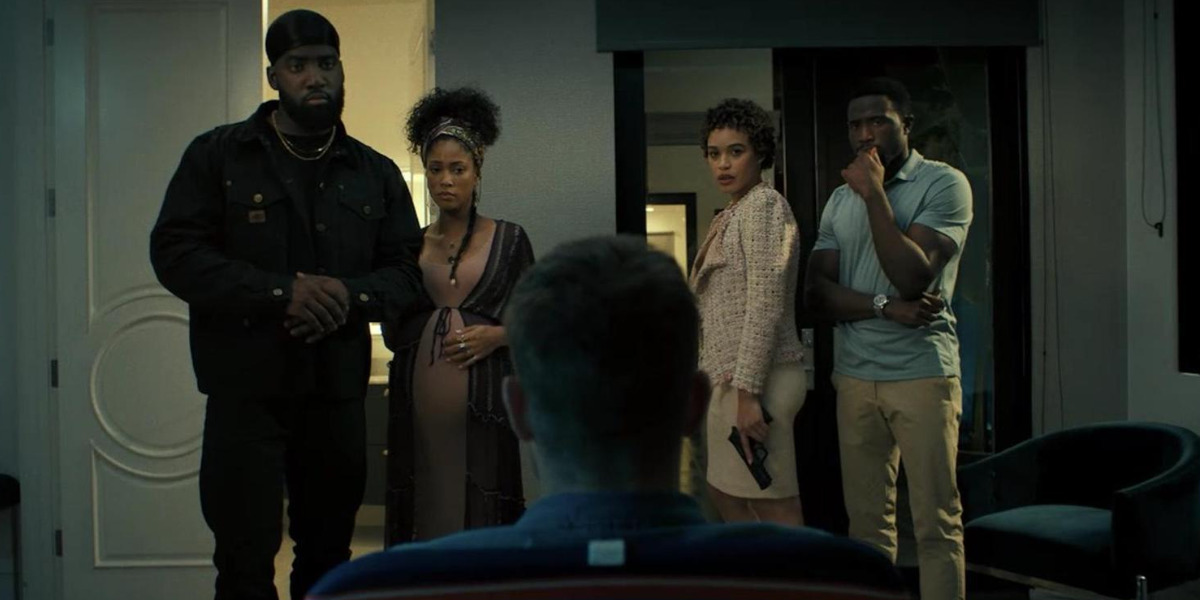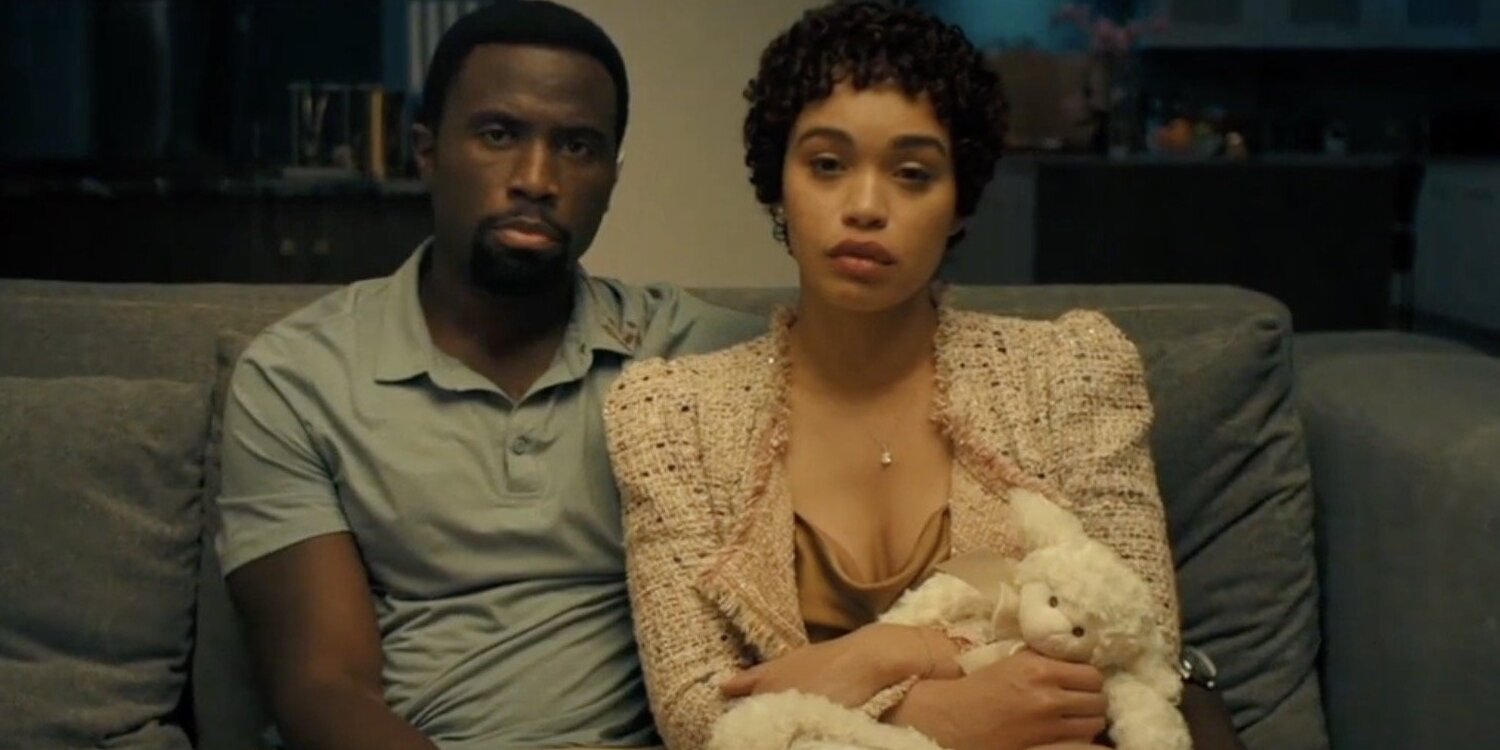Mo McRae’s ‘A Lot of Nothing’ is a comedy thriller film that tackles weighty social topics surrounding race and class through a satirical lens. Brian Stanley, a cop, kills a kid while on duty and receives media backlash for it. Once the news reaches his neighbors, James and Vanessa Frankin, a well-off African-American couple, it results in shared frustrations by the pair. Eventually, Vanessa decides to confront Brian in pursuit of justice, which ends in James and Vanessa, holding Brian hostage inside their house.
‘A Lot of Nothing’ employs interesting characters backed by comedic and dramatic storylines to create a captivating narrative. With an impressive cast comprising Cleopatra Coleman, Y’lan Noel, and Justin Hartley, the film aims to present a story that subverts expectations and starts a conversation. Due to the film’s topical premise, viewers might wonder about the story’s connection to reality. Here is everything we know about the same!
A Lot of Nothing is Not a True Story
‘A Lot of Nothing’ is not based on a true story. Co-written by director Mo McRae, the film initially started out as a short film and was later expanded into a full feature-length story. Although McRae built his career in the industry as an actor with credits on ‘Big Little Lies,’ ‘The First Purge,’ and ‘Wild,’ he had decided he wanted to pursue a future as a director almost a decade before the inception of ‘A Lot Of Nothing.’ Once the actor/producer gained enough confidence in his skills and abilities, he set about the process of bringing his first feature-length directorial debut into being.

“The story [‘A Lot of Nothing’] was inspired by a lot of different things, primarily my own life and this profound need to, kind of, unpack and examine things that I have been thinking and feeling,” McRae said in an interview with Above The Line. Expanding on the film’s origin, McRae continued, “All those things kind of floated around together until it just became a story that I had to tell. I had to find a way to bring all those things together into one cohesive work of art.”
Somewhere along the writing process, McRae decided to add another perspective to the story and brought in Sarah Kelly Kaplan as his co-writer. Kaplan’s insight into the specifics of a female voice helped McRae center his narrative around his female lead, Vanessa. More than that, Kaplan also encouraged McRae to commit to the story and backed up his bold choices.
Even though ‘A Lot of Nothing’ isn’t a direct recreation of any specific event, it does act as a commentary on society. Since a Police violence incident forms the primary point of contention for the film, it inherently takes inspiration from real life in that regard. According to a report by the American non-profit organization, Mapping Police Violence, police are almost 3 times more likely to kill Black people when compared to white people in the US. Therefore, by centering its narrative around racial profiling, the film consciously parallels the social reality of the contemporary world.
While discussing the same, McRae said, “The tightrope walk with this film was that I didn’t want to create something that was didactic or heavy-handed or that was too politically motivated or anything like that.” He later added, “People talk about art being like a mirror for society, but this particular mirror was a funhouse mirror. It’s still a mirror, but it is distorted. It is not exactly as things are, but it’s not that far off. There are a lot of truthful elements in the absurdity of it all.”
Similarly, several other social issues occasionally take center stage in the narrative throughout the film’s runtime. Through different characters, the film explores themes of classism, performative activism, and sexism. In doing so, the film repeatedly topples the audience’s assumptions and expectations, presenting them with juxtaposing ideas to replicate the inconsistency of reality.
Ultimately, ‘A Lot of Nothing’ is not based on a true story. However, by equipping engaging characters with clashing opinions and contrasting personalities, the film initiates an interesting conversation charged with social issues. Additionally, it balances out the heavy subject matter with humorous instances and urges the audience to critically engage with the distinction between facts and their own preconceived notions.
Read More: Movies About Riots and Police Brutality


You must be logged in to post a comment.